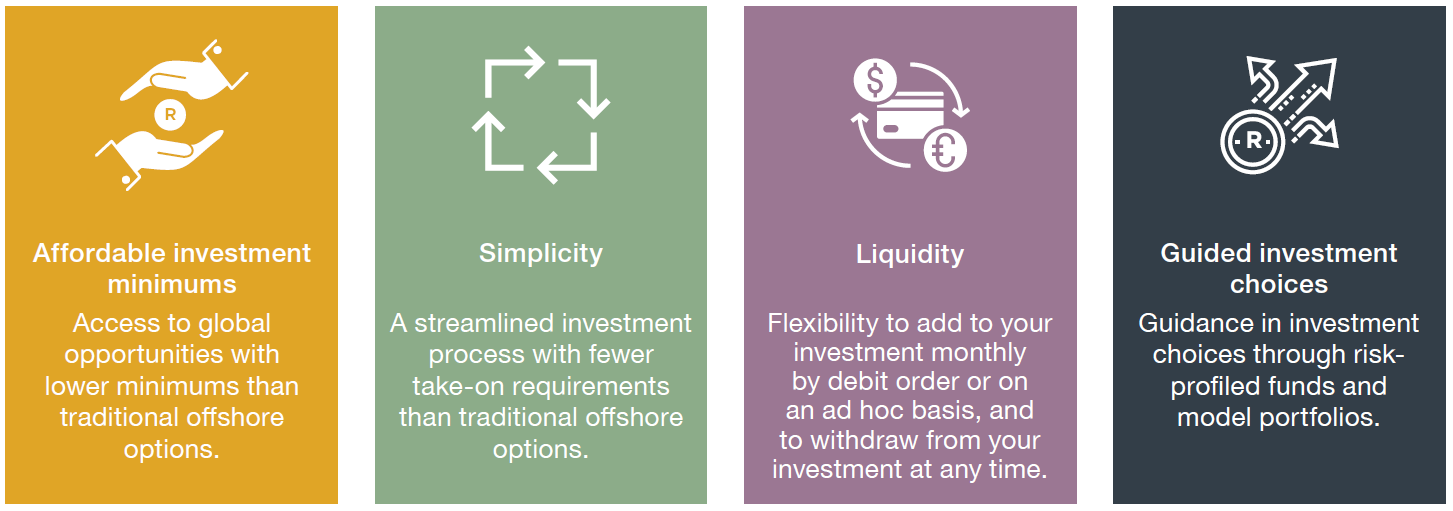Checking out Just How Spending Off Coast Works: A Comprehensive Overview
Investing offshore provides a complex landscape of opportunities and obstacles. Comprehending the different types of overseas accounts is essential for anybody considering this path. The advantages, including boosted privacy and property security, are considerable. However, legal and tax effects necessitate cautious attention. As financiers look for to optimize their portfolios, the steps to develop a sensible offshore investment strategy come to be necessary. What are the crucial elements that a person must navigate to do well in this endeavor?
Recognizing Offshore Accounts and Their Types
What drives people and organizations to ponder overseas accounts? The allure of economic privacy, asset protection, and possible tax advantages usually brings in the interest of those looking for to manage their wide range more tactically. Offshore accounts, normally developed in foreign territories, can be found in numerous forms. Individual accounts accommodate specific needs, using solutions like cost savings, investment, or retirement preparation. Service accounts, on the other hand, serve business wanting to facilitate worldwide deals, boost personal privacy, or optimize tax responsibilities. Trust fund accounts give an extra layer of defense, permitting individuals to guard their assets for future beneficiaries. Each type of offshore account presents distinct attributes, usually influenced by the regulatory setting of the host nation. Understanding these distinctions is vital for businesses and people, as the choice of account type can notably impact their financial methods and compliance with worldwide legislations.
Advantages of Offshore Spending
While several financiers look for possibilities to expand their portfolios, offshore spending presents distinct benefits that can enhance monetary growth and safety and security. One remarkable advantage is the potential for asset protection. Offshore accounts can safeguard financial investments from political instability or economic recessions in the financier's home nation. Additionally, offshore financial investments usually provide access to worldwide markets, allowing capitalists to take advantage of arising economic situations and fields that might not be available domestically.Another significant advantage is tax efficiency. Several overseas jurisdictions offer desirable tax obligation regimes, which can decrease tax obligation liabilities and boost general returns. Additionally, offshore investing can boost privacy, as certain territories apply stringent privacy laws.Lastly, offshore accounts can facilitate riches monitoring approaches by giving a bigger variety of financial investment alternatives, including different possessions such as realty and products. Collectively, these advantages make overseas spending an attractive selection for those seeking to reinforce their financial profiles.

Lawful and Regulative Considerations
Guiding through the governing and lawful landscape of offshore investing requires mindful focus and understanding. Investing Off Shore. Investors need to navigate an intricate internet of laws that differ considerably from one territory to an additional. Compliance with neighborhood laws is crucial; failing to do so can result in extreme fines, including penalties and jail time. In addition, knowing the lawful frameworks regulating foreign financial investments is important for guaranteeing the security of assets and maintaining functional legitimacy.Key considerations include understanding the governing needs for developing offshore entities, such as corporations or trusts, and adhering to anti-money laundering (AML) and know-your-customer (KYC) guidelines. Financiers must additionally understand reporting obligations in their home country, as several nations require disclosure of overseas holdings. Engaging with legal specialists experienced in overseas investment can offer indispensable assistance, assisting investors to minimize dangers and safe and secure compliance with appropriate regulations and guidelines while optimizing their investment potential

Tax Implications of Offshore Investments
Comprehending the governing and lawful considerations of offshore investing naturally causes an evaluation of the article tax obligation ramifications related to these financial investments. Offshore investments can provide substantial tax benefits, including decreased tax obligation rates and the potential for tax deferment. Financiers must browse intricate tax policies in their home countries, as numerous territories require taxpayers to report international income and assets.For U.S. citizens, the Foreign Account Tax Obligation Compliance Act (FATCA) mandates the coverage of overseas accounts, while various other nations have similar demands. Failure to comply can cause serious charges. Furthermore, certain overseas funds might go through special tax treatments, such as Passive Foreign Financial Investment Company (PFIC) guidelines, making complex financial investment strategies.Investors need to take into consideration speaking with tax specialists to comprehend effects details to their circumstances and warranty conformity with both worldwide and residential tax obligation regulations, inevitably optimizing the advantages of their overseas financial investments while reducing risks.
Steps to Start With Offshore Investing
Many investors looking for to expand their portfolios turn to overseas investing as a practical alternative. To start, one need to perform complete research on possible overseas jurisdictions, considering factors such as regulatory environment, taxation, and financial investment chances. Investing Off Shore. After picking an ideal place, investors need to develop an offshore account, which generally calls for documents verifying identity and source of funds.Next, investors often involve with a financial advisor or an overseas financial investment firm acquainted with neighborhood regulations and market characteristics. This collaboration can help in crafting a tailored financial investment approach that lines up with individual goals and risk tolerance.Once the method remains in place, financiers can continue to choose details possessions or funds for financial investment, ensuring they review performance and takes the chance of regularly. Maintaining compliance with both neighborhood and home nation policies is vital for effective offshore investing, requiring continuous diligence and potentially regular appointments with legal specialists.

Frequently Asked Inquiries
Exactly how Do I Choose the Right Offshore Territory?
Selecting the right offshore jurisdiction includes assessing elements such reference as governing atmosphere, tax benefits, political security, and simplicity of doing organization. Researching each choice extensively ensures educated decisions that align with individual investment goals and run the risk of tolerance.
What Kinds Of Assets Can I Hold Offshore?

Are There Risks Connected With Offshore Investing?
The threats connected with overseas investing include legal complexities, regulatory modifications, currency variations, and potential political instability. Investors should meticulously examine these variables to minimize risks and guarantee compliance with international legislations and guidelines.
Exactly How Can I Gain Access To My Offshore Finances?
To access overseas funds, people commonly need to call their banks, offer essential identification and documents, and comply with well-known procedures for fund transfers, making sure conformity with both regional and global regulations governing offshore financial investments.
What Are Common Mistaken Beliefs About Offshore Accounts?
Usual mistaken beliefs regarding overseas accounts consist of ideas that they are entirely for tax evasion, absence of regulation, or only accessible to the rich. Actually, they can be legitimate monetary tools for varied people. In addition, offshore investments frequently give accessibility to global markets, allowing capitalists to tap into emerging economies and markets that might not be like it available domestically.Another substantial advantage is tax obligation performance. Overseas investing can improve personal privacy, as certain territories impose strict confidentiality laws.Lastly, offshore accounts can promote wide range administration approaches by providing a wider range of investment options, including alternative assets such as real estate and products. Understanding the governing and lawful considerations of offshore investing naturally leads to an assessment of the tax implications associated with these financial investments. Offshore financial investments can use considerable tax benefits, consisting of decreased tax obligation prices and the capacity for tax deferment. After picking an ideal location, capitalists need to establish an overseas account, which usually needs documents proving identification and resource of funds.Next, capitalists usually engage with an offshore financial investment or an economic consultant firm familiar with neighborhood laws and market dynamics.